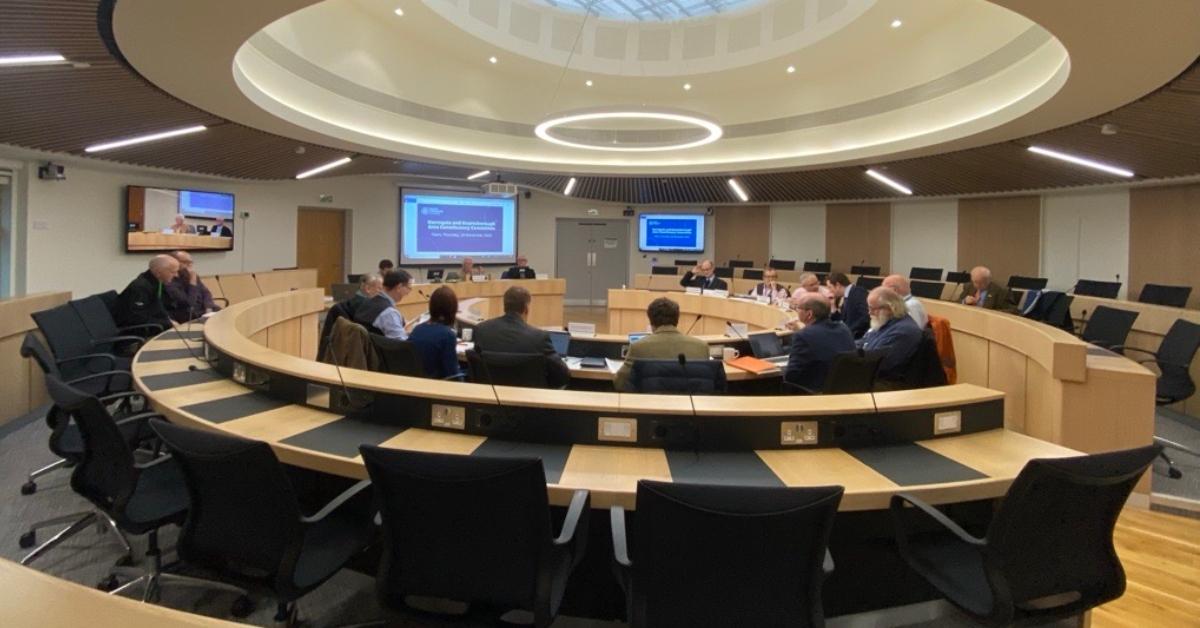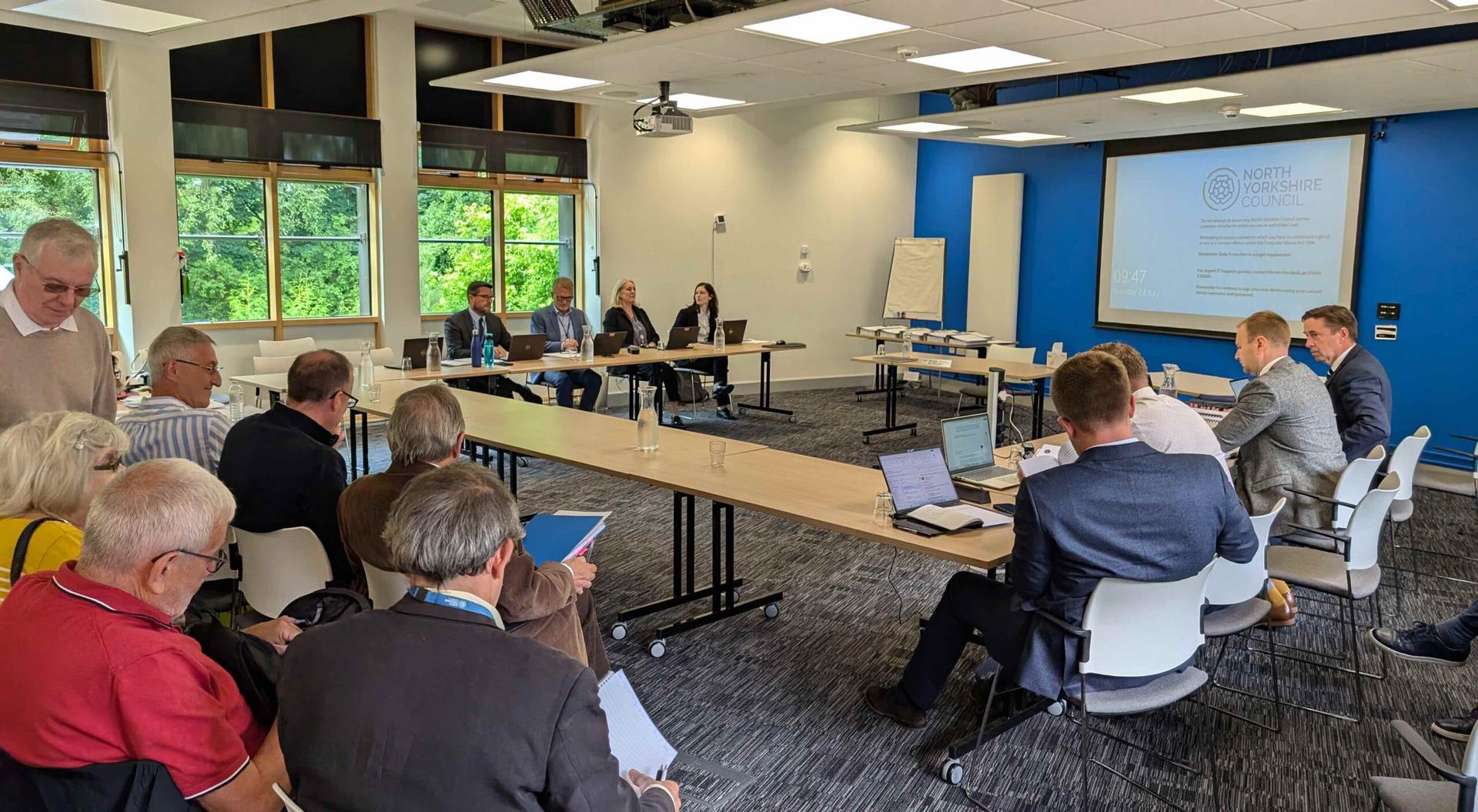Subscribe to trusted local news
If you are accessing this story via Facebook but you are a subscriber then you will be unable to access the story. Facebook wants you to stay and read in the app and your login details are not shared with Facebook. If you experience problems with accessing the news but have subscribed, please contact subscriptions@thestrayferret.co.uk. In a time of both misinformation and too much information, quality journalism is more crucial than ever. By subscribing, you can help us get the story right.
- Subscription costs less than £1 a week with an annual plan.
Already a subscriber? Log in here.
15
Dec 2024
What role will Harrogate councillors have in future housing decisions?

Labour’s move to reform planning policy as part of its housebuilding drive comes at a time when Harrogate councillors now feel further removed from the decision-making process.
While Angela Rayner, the deputy Prime Minister, was unveiling policies designed to drive the supply of housing, North Yorkshire Council was negotiating a settlement with developers over a planning appeal for more homes on Knox Lane.
It came after councillors blocked a move to build 53 new houses in September 2023, some 10 months prior to Labour’s sweeping election victory. Is North Yorkshire prepared for Labour's dramatic rise in housing targets?
The two scenarios appear to symbolise what some councillors feel the planning process has now become — a system which leaves little room for input from local representatives, unless you’re willing to pay the costs.
‘The role of local councillors will become less and less’
Last week, the Stray Ferret reported that a long-running dispute over 53 new homes on Knox Lane had come to an end.
The result was a £180,000 bill, which will be footed by local taxpayers.
This followed Mark Sturgess, a government-appointed planning inspector, granting Teesside developer Jomast permission to build on the site tucked away in a corner of Bilton.
Over the course of four committees, the Harrogate and Knaresborough planning committee delayed the application three times before rejecting it on the fourth occasion in September 2023 against officer recommendations.
The delay was the final straw for Jomast, which took the decision to the government’s Planning Inspectorate and said the authority “demonstrated unreasonable behaviour” during the planning process.
Such an appeal may become a thing of the past under the Labour government’s reforms.

Angela Rayner, deputy prime minister. Picture: Twitter/X
Last week, Angela Rayner, deputy Prime Minister, unveiled plans to “fast track” planning decisions and “bypass planning committees” if proposals comply with development plans.
Ms Rayner said:
Building more homes and infrastructure across the country means unblocking the clogged-up planning system that serves as a chokehold on growth. The government will deliver a sweeping overhaul of the creaking local planning committee system.
The move could mean fewer instances of disagreement between elected councillors and council officers — as demonstrated over the Knox Lane decision in September 2023 and subsequent appeal hearing in July this year.
One of the councillors who sat on the committee which made the decision was Cllr Chris Aldred, the Liberal Democrat councillor who is now vice-chair on the planning committee.
Cllr Aldred told the Stray Ferret he stood by his decision to refuse the application, which was turned down on three grounds: insufficient evidence that the development would be sustainable, detrimental impact of the special landscape area, and unacceptable impact on biodiversity.
The refusal was a demonstration of councillors going against officer recommendations — something which the Harrogate councillor believes will be seen less under Labour's plans.
He said:
Unfortunately, from what I have read this week about the incoming government’s proposals to streamline the planning process, I think the role of local councillors will become less and less, with planning officers being given the authority to grant permission, as long as a scheme is submitted within a designated site, as outlined in a Local Plan and meets current environmental and legal concerns.
The council is currently drawing up a new Local Plan for the county — which the Stray Ferret has reported on extensively here.
In light of the planning blueprint, which will set out where new houses and commercial developments can be built in the region over the next 15 to 20 years, some councillors have called for no further housebuilding in their area.
However, the call may be futile in light of the government’s agenda to build some 1.5 million new homes over the next five years — which may include North Yorkshire shouldering a target of some 4,000 houses a year.

Knox Lane planning hearing in Harrogate. Jomast (right) sat across from North Yorkshire Council officers in July.
There is also the fact that the Harrogate and Knaresborough planning committee appears to be considering very little in the way of applications already.
Analysis by the Stray Ferret shows that the committee has only met seven times out of a scheduled 12 meetings this year.
It has also held one meeting since June 2024 and on that occasion just one planning proposal was considered.
The Stray Ferret asked North Yorkshire Council why so many meetings were being cancelled.
In response, Cllr John Mann, chair of the Harrogate and Knaresborough area planning committee, said:
We are committed to open and transparent governance, and this applies as much to planning matters as it does to all other aspects of our responsibilities.
Currently, there are a number of significant applications destined for the committee’s attention which have unfortunately been delayed. These will come before councillors in the fullness of time.
Some applications have been determined by the strategic planning committee, in line with the council’s scheme of delegation and others that were destined to be heard by councillors have been withdrawn.
Officers speak regularly with committee members to keep them informed of developments and the reasons why applications may or may not come before them.
While it is unfortunate that some meetings have had to be cancelled, these decisions are not made lightly and are always decided with the interests of residents at heart.
‘Removing councillors from the planning process is anti-democratic’
The lack of meetings combined with the Labour government’s desire to drive forward housebuilding as part of its manifesto pledged begs the question what role will councillors have?
For Dr Quintin Bradley, senior lecturer in planning and housing at Leeds Beckett University, the matter over making planning decisions is not straightforward.
He told the Stray Ferret that councillors have to consider multiple factors when adjudicating on a planning application.
Dr Bradley said:
It is the duty of planning officers to help elected representatives make a decision that complies with planning law and policy.
But planning decisions are rarely straight forward since they concern matters of property rights and ethical questions of who gets what, where?
Policy has to be interpreted and applied to local circumstances. There are questions over what weight to give to different policies and there are often disagreements over what issues are 'material' to the decision-making process.
As for a councillor's role in the decision-making process, Dr Bradley said it is “essential” to a functioning democracy that elected representatives are involved.
He added that the government’s desire to spearhead development, which in turn may sideline councillors, is “anti-democratic”.
Dr Bradley said:
Planning decisions are governed by the local development plan which is a democratically agreed vision of what the local community wants. Councillors are blamed for representing their constituents' views, but that is what democracy is about. Democracy is often an antagonistic process.
The Starmer government proposals appear intended to remove any debate over the rights and wrongs of property development. They promote the presumption that development is an uncontestably 'good thing’. Removing elected representatives from the planning process is anti-democratic.

Click here to gift someone a Stray Ferret subscription today.
0